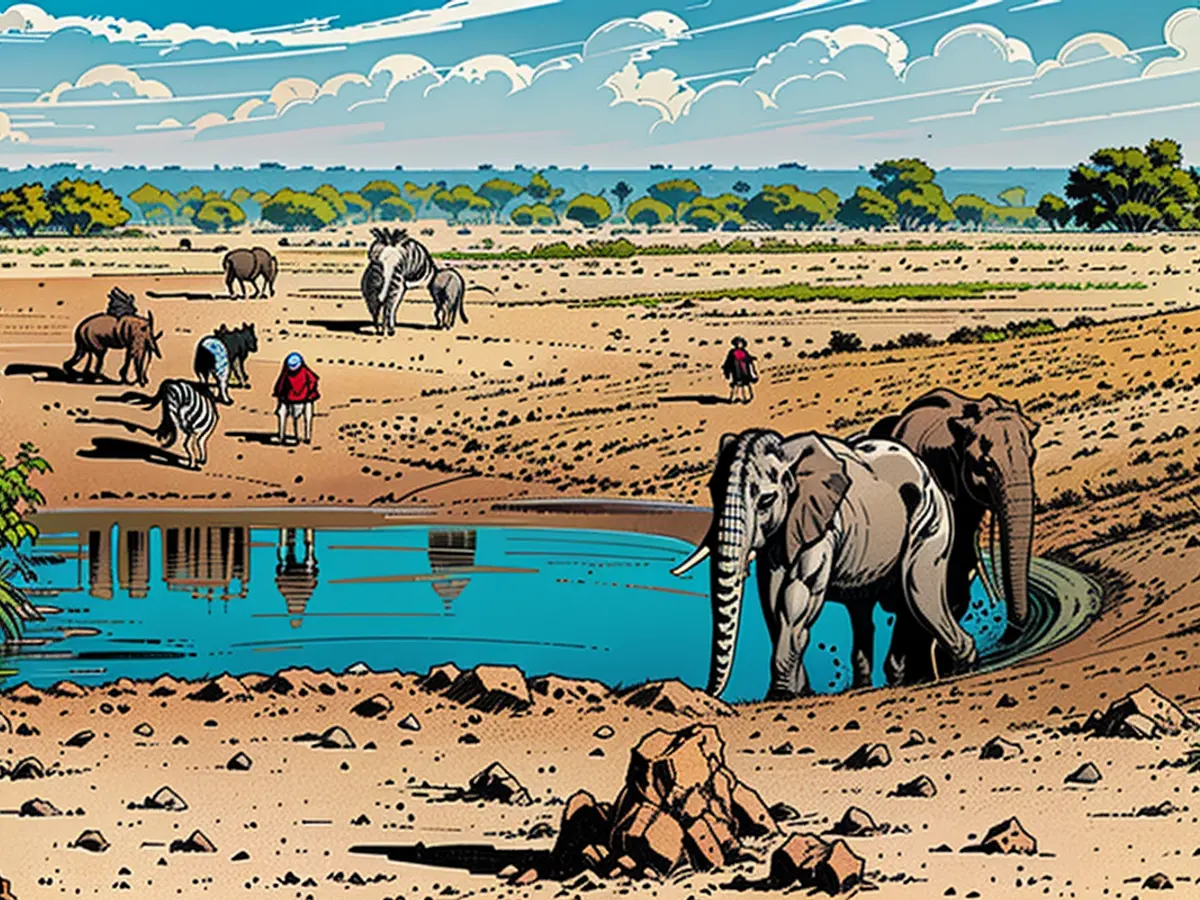In response to the drought, Namibia takes the lives of over 700 wild animals.
Due to the most severe drought in many years, Namibia is now executing the killing of approximately 700 wild animals, including hippos, elephants, and zebras. Around 160 animals have already been culled, as per the Ministry of Environment and Tourism. The purpose of this action, according to the authorities, is to alleviate the strain on water resources and offer meat to the thousands of individuals suffering from the drought.
Professional hunters are executing the hunt following an order issued last week. The list of animals to be killed includes 30 hippos, 60 buffalo, 83 elephants, and 300 zebras.
Duration of the operation is still uncertain
The duration of the operation is yet to be determined, a representative from the Ministry of Environment and Tourism revealed. "Our aim is to keep distress to a minimum. We need to separate the animals set for hunting from those that aren't." The representative added that the elephants' tusks will be stored in government warehouses in compliance with the global ban on ivory sales.
The government's decision has sparked severe criticism from animal rights activists. "The plan is not only inhumane but also dangerously short-sighted," stated Peta, a prominent animal rights organization. The culling will not address the drought issue.
Namibia declared a state of emergency due to the drought, which is currently impacting large parts of southern Africa, in May. As per the World Food Programme, nearly half of Namibia's population, approximately 1.4 million people, are facing critical food insecurity.
The Commission has authorized the operation, which involves the culling of wild animals due to the drought. The duration of the operation, overseen by the Ministry of Environment and Tourism, is still under consideration.






